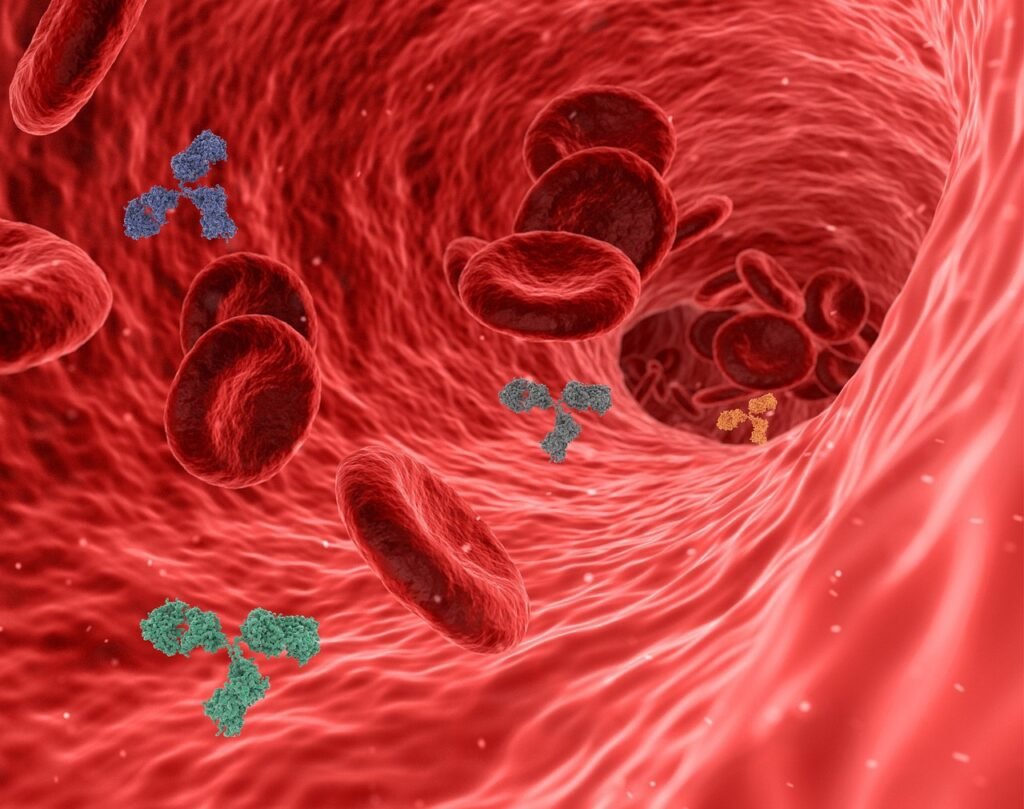
In our daily hustle and bustle, we often forget how crucial it is to maintain a robust immune system. A healthy immune system not only wards off common colds and flu but also plays a vital role in preventing severe diseases like cancer.
It’s the unsung hero, our body’s first line of defense against bacteria, viruses, and other harmful invaders. But how can we ensure that our immune system is functioning at its peak?
This post outlines some critical factors that can help you build up your immune system and win the health battle.
Understanding Your Immune System – The Body’s Own Defense Mechanism

The immune system is an intricate orchestra, playing the symphony of protection within your body. Consider it like a well-oiled machine, a biological fortress or an army of loyal warriors, all working relentlessly to shield you from harmful invaders.
The knights in shining armor of this system are the white blood cells, or leukocytes. They roam the corridors of your body, always vigilant, ready to fend off pathogens that dare to trespass. They’re the defenders, your very own personal bodyguards. When you talk about strengthening your immunity, you’re actually talking about empowering these leukocytes, making them stronger, more efficient, and more effective.
Think of it this way – a fortress is only as strong as its guards. Therefore, the focus of boosting your immunity essentially revolves around fostering a lifestyle that amplifies the production and efficiency of these white blood cells. It’s about creating an environment where these cells can thrive and perform their duty optimally.
Therefore, if you want to unlock the secret to a thriving immune system, start by understanding and nurturing your white blood cells.
Proper Nutrition – Fuelling Your Immune System with the Right Foods

When it comes to your immune system, think of food as fuel. It’s the power source for your body’s defense mechanism, aiding the production and performance of those loyal leukocytes we talked about earlier. A diet rich in fruits, vegetables, lean proteins, and healthy fats provides the essential nutrients that your immune system needs to function optimally.
Picture fruits and vegetables as the colorful allies of your immune system. They are packed with vitamins, minerals, and antioxidants that enhance immune response. Citrus fruits, strawberries, bell peppers, and spinach are excellent sources of vitamin C, a crucial nutrient that boosts the production of white blood cells.
Lean proteins, on the other hand, are your immune system’s muscle builders. They play a significant role in the creation and repair of immune cells. Opt for lean meats, poultry, fish, eggs, and plant-based proteins like lentils and chickpeas to provide your body with the necessary protein.
Don’t forget about healthy fats! These fats, found in foods like avocados, olive oil, and fatty fish, are known to promote immune response by reducing inflammation in the body.
Remember, your gut also plays a significant role in your immunity. About 70% of your immune system resides in your gut, so maintaining a healthy gut is key. Incorporate probiotic-rich foods like yogurt, kefir, and fermented foods into your diet to support a healthy gut microbiome.
Lastly, it’s crucial to cut back on processed foods, sugary drinks, and alcohol. These can create an imbalance in your gut microbiome and weaken your immune system. So, fuel your body with the right nutrients and watch your immune system thank you in the form of improved health and vitality.
Physical Activity – Strengthening Your Immune System with Exercise

Imagine a workout not just sculpting your physique, but also turbocharging your immune system! That’s right, exercise is a key player in powering up your body’s defense mechanism. Think of it like shaking a snow globe, it gets everything moving and active. When we engage in physical activity, we’re enhancing the ability of our immune cells to perform their duties more efficiently.
Exercise acts like a natural broom, helping to sweep out bacteria from the lungs and airways, thereby reducing your risk of catching a cold or the flu. A good workout also revs up the performance of your white blood cells, making them ready and more capable to fight off intruders.
And that’s not all, regular exercise can also play a pivotal role in managing stress levels. Why is this crucial, you ask? Well, stress hormones, if left unchecked, can potentially impair the immune system. So, when you’re sweating it out, you’re not just burning calories, but also buffering your immune system against the harmful effects of stress.
So, whether you’re a fan of serene yoga sessions, love high-intensity interval training, or prefer a peaceful walk in the park, make sure you’re moving daily. There’s no one-size-fits-all when it comes to exercise, so pick an activity that suits your lifestyle and preference. The key is consistency. Your immune system will thank you with improved resilience and vitality. Let’s get moving, shall we?
Adequate Sleep – Giving Your Immune System Time to Recharge

A journey to the dreamland every night does more than just refresh your mind. It is like a revitalizing spa retreat for your immune system. While we snuggle in the comfort of our beds, our bodies are busy repairing and regenerating, including our unsung heroes – the immune cells. Just as a smartphone needs to be charged for it to function optimally, our immune system needs quality sleep to recharge and revitalize.
Sleep deprivation can act like kryptonite to your immune system, weakening its defenses. Research has shown that sleep-deprived individuals are more susceptible to infections, highlighting the importance of quality sleep in maintaining robust immunity. When we’re snoozing, our body produces and releases cytokines, proteins that are crucial in fighting infections and inflammation. Lack of sleep can disturb the production of these protective cytokines, leaving your body’s fortress more vulnerable to intruders.
But what does ‘adequate sleep’ mean? While the magic number can vary for each individual, adults generally need between 7 to 9 hours of sleep per night. It’s not just the quantity, but the quality of sleep also matters. Strive for uninterrupted, deep sleep to give your immune system the best chance to recharge and gear up for the next day’s battles.
To help create a sleep-friendly environment, keep your bedroom cool, dark, and quiet. Consider establishing a relaxing pre-sleep routine that can include reading, meditating, or having a warm bath. Limit exposure to screens before bedtime as the blue light emitted can interfere with your body’s natural sleep rhythm.
So, surrender to the sandman every night, and provide your immune system with the restorative break it needs to guard your health efficiently. After all, a well-rested warrior is a strong warrior, isn’t it? Remember, when you hit the hay, your immune system is just beginning its night shift. Sleep tight and keep your immune system right!
Stress Management – Protecting Your Immune System from the Harmful Effects of Stress

Like an unwelcome guest, stress can sneak into your life and take a toll on your immune system. The constant hum of stress creates an overflow of cortisol, a hormone that, in abundance, can put a damper on your immune response. Over time, this can leave you more susceptible to infections and illness, turning your body’s once-mighty fortress into an open field for invaders.
So, how do we evict this unwanted guest? The answer lies in stress management techniques that can help shield your immune system from the brunt of chronic stress. Techniques like yoga and meditation are not only restorative for your mind but also your immune system. Think of them as your body’s internal stress-busters, working to restore balance and harmony, allowing your immune system to function without the added pressure of cortisol.
Deep breathing exercises can also be powerful tools in your stress management arsenal. They help to calm your mind and, in turn, lower cortisol levels, giving your immune system the chance to regain its strength.
And let’s not forget the stress-busting power of social connections. Spending quality time with loved ones or participating in group activities can provide a much-needed reprieve from stress, creating a more conducive environment for your immune system to thrive.
Stress may be a part of life, but it doesn’t have to take over your life. By incorporating these stress management techniques into your daily routine, you can help safeguard your immune system from the harmful effects of stress. It’s like giving your immune system its own personal bodyguard, always ready to step in when stress threatens to knock on your body’s door. So, breathe deep, connect often, and let your immune system reap the benefits.
Regular Check-ups – Keeping an Eye on Your Immune Health

Picture this – your immune system is a finely-tuned orchestra, and the regular health check-ups are the skilled conductor. They keep the tempo, ensuring every part is playing in harmony. Think of it as your regular ‘health audit’, allowing you to spot any inconsistencies or potential issues before they turn into a full-blown crisis.
Just like a car requires routine inspections to ensure smooth performance, so does your body, especially your immune system. Your white blood cells, the knights of your immune system, can be easily monitored through regular blood tests. This will provide you with valuable insights into their numbers, their readiness, and their vigor.
Are they too few, or too many? Both could indicate potential problems that may need to be addressed. Regular health screenings can also identify if there are any nutrient deficiencies. Remember, your immune system is a team and needs all players, including vitamins and minerals, to be present and performing at their best.
Staying on top of your health through regular check-ups gives you the advantage of timely intervention. It empowers you to take corrective actions, make dietary adjustments, or lifestyle changes as required. It’s like being the proactive general of your health army, planning and strategizing based on real-time data.
While this doesn’t mean you need to become a self-diagnosis expert or get a health screening every other week, having an annual check-up or visiting your doctor when something feels off, is a smart strategy. After all, it’s always better to prevent a health battle than to fight one, right? Keep an eye on your health, and let your immune system shine in all its protective glory.
The Power of Hydration – How Water Boosts Your Immune System

Picture this – a beautiful, clear flowing river. This is akin to your body when it’s well-hydrated. Now, imagine a stagnant pond where movement is minimal. This is your body when it’s dehydrated. Which scenario sounds more conducive for your body’s warriors – the white blood cells – to move freely and perform their duties efficiently? The answer is clear, isn’t it?
Water is an unsung hero in maintaining your immune health. It helps in producing lymph, a crucial fluid in your body that functions as a transport system for your immune cells, especially white blood cells. Think of lymph as the highway that allows these cells to reach the various battlegrounds in your body. Dehydration can lead to a sluggish lymphatic system, potentially slowing down the response of your immune system. Staying well-hydrated, therefore, keeps this highway clear and your immune cells mobile.
So, let’s pledge to keep our inner rivers flowing. Aim to drink enough water throughout the day – your immune system will thank you by staying in top form, ready to guard your health. It’s time to raise a glass (of water) to your immune health!
